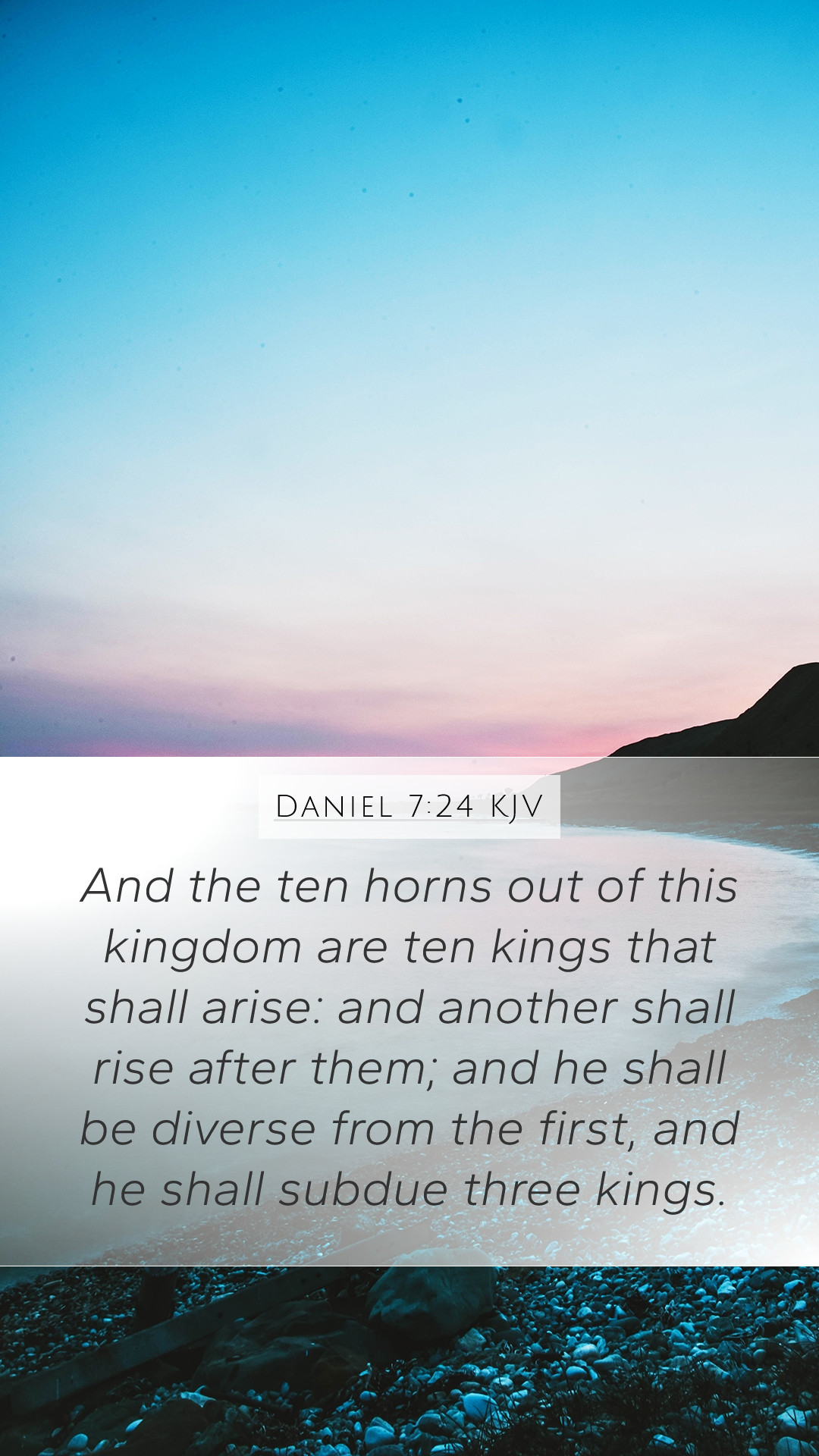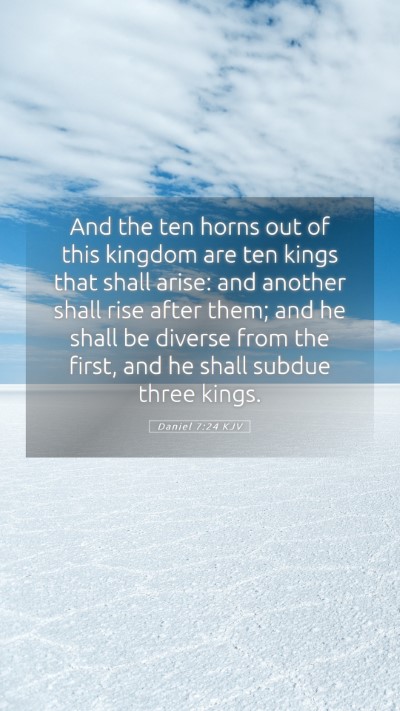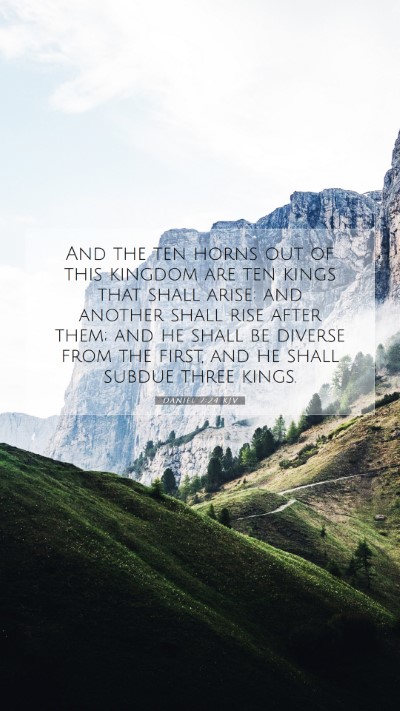Understanding Daniel 7:24 - A Comprehensive Bible Verse Explanation
The verse Daniel 7:24 presents a rich tapestry of prophetic meaning and is crucial for anyone engaged in Bible study insights or seeking to grasp the essence of Bible verse interpretations. The verse states:
"And the ten horns out of this kingdom are ten kings that shall arise: and another shall rise after them; and he shall be diverse from the first, and he shall subdue three kings."
Verse Context and Overview
To comprehend Daniel 7:24, it is essential to consider the historical and prophetic context in which it was written. The chapter describes a vision of four beasts, representing different kingdoms, and the horns symbolize kings or kingdoms that arise from these empires. The focus of this commentary is on the implications of the ten horns and the eleventh horn, which is often interpreted as representing an Antichrist-like figure that will emerge in the last days.
Analysis from Public Domain Commentaries
Insights into this passage can be gathered from reputable commentators. Below are summaries of interpretations from Matthew Henry, Albert Barnes, and Adam Clarke:
Matthew Henry's Commentary
Matthew Henry emphasizes that the ten horns represent ten kings who will arise from the kingdom noted in Daniel’s vision. He suggests that these kings will possess significant power but will be followed by another king, portrayed as 'diverse' and formidable. Henry notes that this new king will oppress three of the preceding kings, an act that signifies a tumultuous period marked by conflict and dominance. This commentary aligns with the understanding that God's ultimate plan will prevail despite human opposition.
Albert Barnes' Notes
Albert Barnes focuses on the prophetic nature of the text, highlighting the sequence of kings that lead up to the final oppressive king. He interprets the 'little horn' as a representation of one particular power that arises from the Roman Empire, which will be different in nature and more destructive in action than the preceding rulers. Barnes draws attention to the prophetic significance of these kings, suggesting they play a crucial role in the unfolding of eschatological events. He elaborates on how this verse might be seen in the broader context of biblical exegesis concerning the end times.
Adam Clarke's Commentary
Adam Clarke provides a deep dive into the allegorical aspects of this scripture. He interprets the ten horns as consecutive kingdoms, with the final 'little horn' as an interloper that overtakes three of the first ten. Clarke emphasizes the 'diverse' nature of this king as indicating a shift from traditional monarchy to a tyrannical rule attempting to usurp religious authority. He posits that this king will launch a campaign against the saints, initiating a significant theme of spiritual warfare within the text. Clarke’s interpretations encourage readers to explore the remaining chapters of Daniel for further meaning and context.
Cross References
To deepen your understanding of Scripture surrounding this verse, consider the following related passages:
- Revelation 13:1-10 - The emergence of the beast with ten horns, resembling the themes in Daniel.
- Daniel 2:40-43 - The interpretation of the statue and its kingdoms, providing foundational context.
- 2 Thessalonians 2:3-4 - Discusses the man of sin, adding depth to the prophecy of the final king.
- Matthew 24:15-28 - Jesus' teachings about the abomination of desolation align with the destructive rule of the 'little horn.'
- Revelation 17:12-14 - Reference to the ten kings which parallels Daniel's vision.
Applying the Meaning of Daniel 7:24 to Daily Life
Understanding Daniel 7:24 is not just an exercise in theology but offers practical Bible study lessons for believers. By recognizing the inevitability of opposition and the trials of faith, individuals can cultivate resilience in their spiritual journeys. The passage serves as a reminder that despite fierce spiritual battles, God remains sovereign and in control. Reflecting on the nature of power and leadership illustrated in this passage encourages believers to seek godly wisdom in navigating contemporary issues of authority and justice.
Conclusion
In conclusion, Daniel 7:24 provides profound insights into the nature of power, prophecy, and divine sovereignty. Through the lens of scripture analysis offered by public domain commentaries such as Matthew Henry, Albert Barnes, and Adam Clarke, we can glean valuable lessons that resonate throughout history and into today's world. Engaging with this verse not only enriches our Bible verse understanding but also equips us for practical application in our faith journeys.


